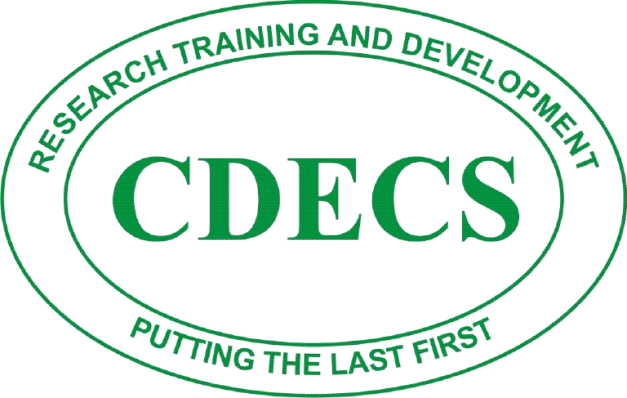Women Development Interventions
Women Development Interventions
Empowering women has been a cornerstone of CDECS’s development strategy. Through various integrated programs, CDECS has worked toward enhancing the social, economic, and leadership capacities of women across rural and tribal regions. The interventions are designed to foster gender equality, improve livelihoods, and promote women’s participation in governance, health, and sanitation initiatives.
A. Women’s Participation in Water & Sanitation Projects
Across multiple WASH-focused interventions (e.g., Apna Gaon Swachh Gaon Pariyojna, Gram Shakti, Jal Jeevan Mission, etc.), women’s engagement has been a designated project component. CDECS has consistently:
Mobilized women to form Water User Groups, VWSCs, and Matri Samitis
Conducted trainings on water handling, hygiene, and O&M of water sources
Promoted use and maintenance of household sanitation facilities
Encouraged women’s leadership in Swajaldhara and NRDWP initiatives
These interventions recognized women as key agents of behavioral change and service sustainability.
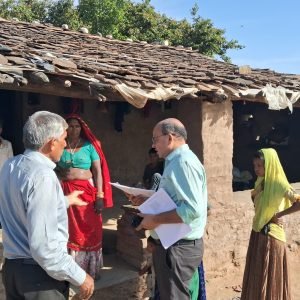
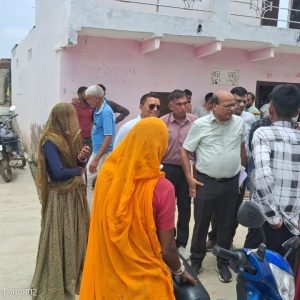
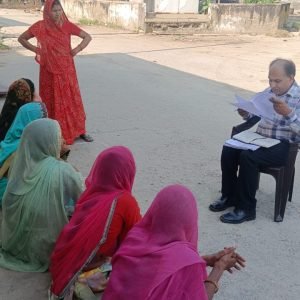
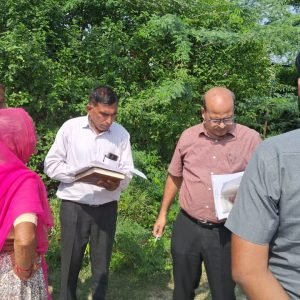
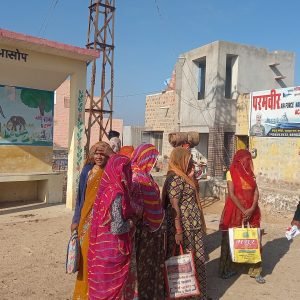
B. Formation of Matri Samiti (Mother Support Groups)
In Anganwadi-centered health and nutrition projects (especially in Banswara and Dungarpur districts), CDECS formed Matri Samitis to:
Promote maternal and child health practices (ANC, PNC, EBF)
Support pre-schooling and growth monitoring at AWCs
Facilitate community engagement and feedback mechanisms
Disseminate key messages on nutrition, immunization, and sanitation
These groups acted as bridges between community women and frontline health workers, enhancing outreach and awareness.
C. Capacity Building of Women Functionaries
CDECS has trained hundreds of grassroots women workers including:
ASHA Workers
Anganwadi Workers (AWWs)
Sahyoginis
Panchayat Women Representatives
Focus areas of training:
Community mobilization
Health & nutrition awareness
Integrated village planning
IEC & behavior change communication
Record keeping and MCHN day planning
These trainings strengthened women’s role as change agents in health and governance.
D. Economic Empowerment through Women’s Groups
In sanitation and infrastructure projects (such as toilet construction under German Embassy support), women’s groups and SHGs were involved in:
Monitoring construction quality and usage
Promoting community contributions for maintenance
Sustaining hygiene behavior at household and village levels
These initiatives enhanced women’s decision-making capacity and involvement in community-level financial and infrastructural planning.
E. Life Skills & Adolescent Girls Empowerment – SABLA Programme
All community micro-planning initiatives (especially under Gram Shakti and Integrated Village Planning) included:
Gender-sensitive consultations using PLA tools
Identification of women-specific challenges and needs
Ensuring equitable participation of women in Village Development Committees (VDCs)
Awareness building on legal rights, access to services, and entitlement schemes
CDECS’s participatory planning model ensured that women’s voices were not just heard but translated into action.
G. Women in Leadership and Governance
Through PRI trainings and decentralization efforts, CDECS actively worked with elected women representatives to:
Strengthen their understanding of roles and responsibilities
Build confidence for active participation in panchayat meetings
Encourage proactive leadership in health, sanitation, and education sectors
These interventions contributed to more inclusive and gender-responsive local governance systems.
